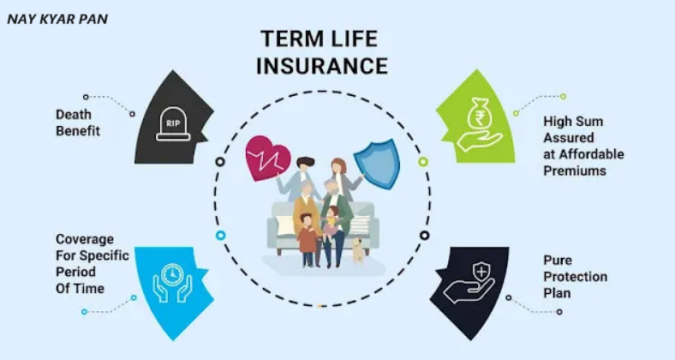
If your term insurance is convertible or renewable, this is how it differs. Keep in mind that if you cancel your current insurance before its conversion or renewal date, you will be able to preserve your current coverage without having to pay for a new policy. Everyone who has or is considering purchasing a term life insurance policy would benefit from knowing the specifics of what happens if the policyholder outlives the policy’s term.
Many people believe that their children will no longer need financial help from them by the time their insurance expires, but this is not always the case.
Upon the expiration of a term life insurance policy, the policyholder typically does not need to take any action. If a policyholder stops paying premiums and doesn’t inform the insurance company, the policy expires, and the beneficiary won’t get anything if the policyholder dies. If you purchase a policy that promises to repay your premium payments, you’ll get a check for the total amount paid at the end of the insurance’s term.
Term conversion riders allow policyholders to convert their term insurance to permanent coverage once their term expires without having to retake a medical exam. This is something to think about if you need health insurance but are worried you won’t be able to pass a physical.

In most cases, you’ll need to convert your policy at least a few months before it expires, so keep that in mind. It is important to understand the policy’s conversion deadline if this is a goal of yours.
Some policies allow you to renew your term life insurance coverage annually after the initial term expires. If you choose to renew your insurance policy, you will continue to be covered for the same calendar year. Nevertheless, you will only be covered for up to a year. Since older policyholders constitute a greater risk to their insurance provider, term life insurance premiums rise with age.
Six months to a year before the policy’s term ends, those in need of continued insurance coverage should start looking into their options. You can still add a term conversion rider to your current policy if that’s what you need to do.
It’s important to remember that some policies allow for a term conversion at the end of the policy term. In this case, converting to a permanent life insurance policy does not necessitate a medical evaluation for the insured. But if the conversion is made before the term expires, the insured can continue to be covered even after the term has ended, albeit at a higher price.
To avoid spending money twice, consumers could save by having their plans converted. As of the conversion date, the new premium will be based on your age rather than your current health.
When comparing life insurance options, a new term policy may be the most cost-effective for the young, healthy, and self-sufficient. Lowering the death benefit and the length of a term life insurance policy can help lower the rates.
After your term life insurance policy expires, you have the option of purchasing a permanent life insurance policy. Never forget that permanent life insurance, such as whole life insurance, can be 10 times as expensive as term life insurance (but it depends on various personal factors and policy choices).
The national average cost of a funeral in the United States is $7,640. Those who do not want to leave their loved ones with a financial burden but do not need a huge payout may benefit from final cost insurance, sometimes known as burial insurance. This policy is not advised for income replacement due to its low coverage limits, which are typically around $25,000 for final expense life insurance. As the insurance provider is taking on extra risk without a mandatory preexisting condition medical examination, premiums are sky high.
